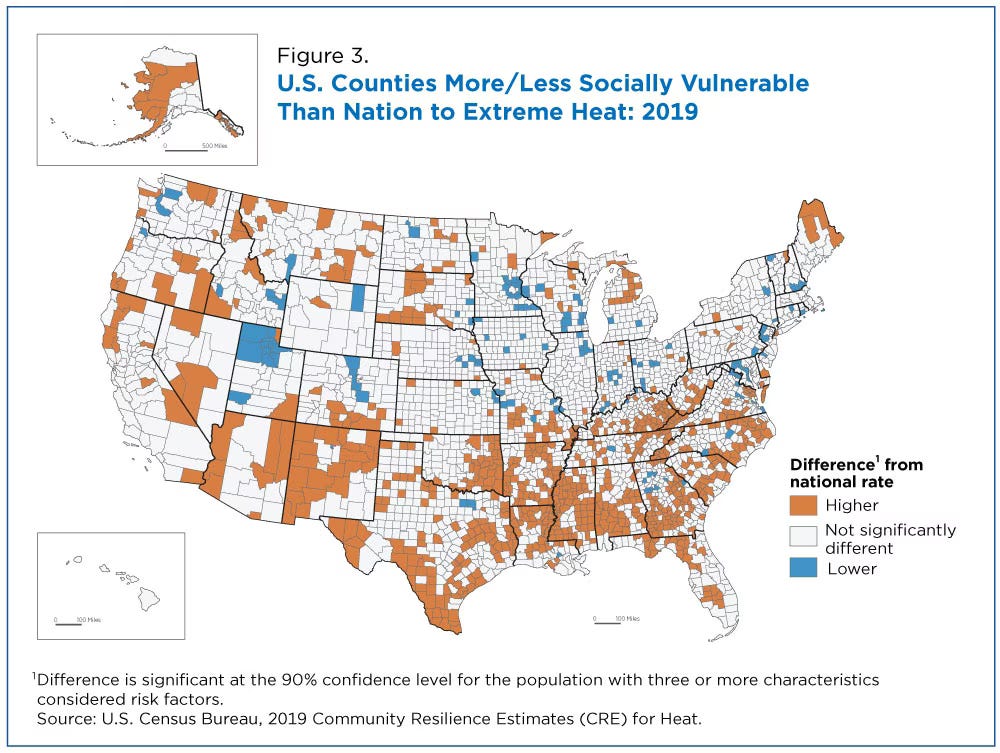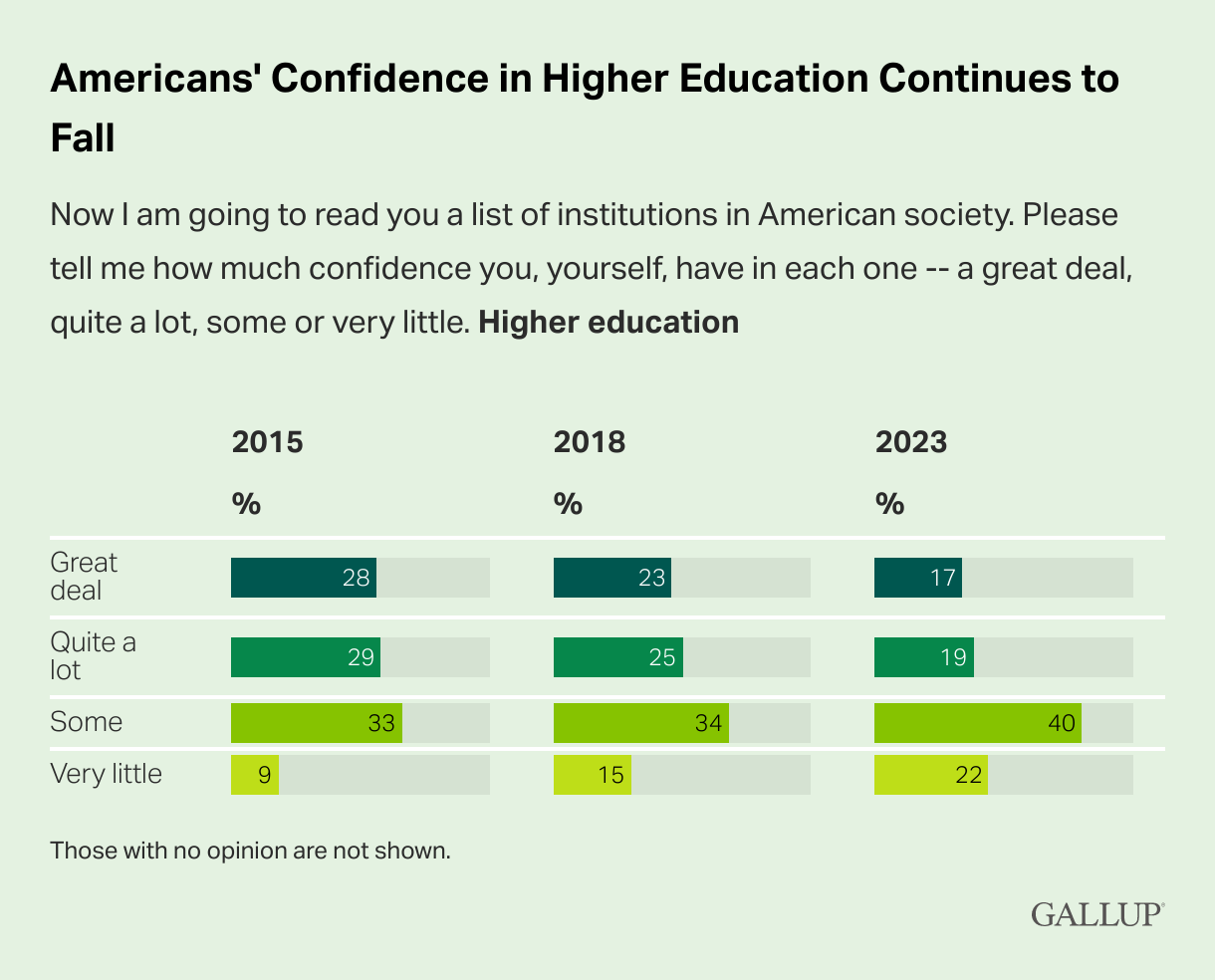Quick Takes and Random Stuff - July 13, 2023
Record heat, higher ed's decline, reindustrialization and more
Record Temps
We have had record-breaking 2m world surface temperatures for most of July. At least some of this is due to El Niño (see Three Trends of Climate Change) emerging this summer. We might have a stretch this summer with temperatures above 17°C (62.6°F).

Community Resilience Estimates (CRE) for Heat
In their piece, Almost a Quarter of U.S. Population Vulnerable to Rising Heat (July 11, 2023), the Census Bureau shows this map of places where people are less able to handle heat.
In other words, when accounting for additional housing and transportation characteristics, more people in the United States are socially vulnerable or less resilient to rising heat temperatures.
Higher Education Continues to Lose Confidence
The Gallup article Americans’ Confidence in Higher Education Down Sharply (7/11/2023) notes
Americans’ confidence in higher education has fallen to 36%, sharply lower than in two prior readings in 2015 (57%) and 2018 (48%).
It's not encouraging to read stories in the Chronicle of Higher Education (July 10, 2023) with this in the first paragraph:
He had on various occasions complained in faculty deliberations that the program with which he was associated had become too focused on “social justice” at the expense of its intellectual integrity. He was sanctioned for raising those concerns. A majority of the court disagreed that such speech is constitutionally protected.
Higher education has justified its cost based on the return on investment. If intellectual integrity is sacrificed for social justice, it would seem that doesn’t help the return on investment argument. Note that I don't like the focus on return on investment (see below for a book recommendation).
U.S. Population Decline
The Economic Innovation Group article Young Families Have Not Returned to Large Cities Post-Pandemic (June 29, 2023) provides this graph.
It is true that the biggest cities are losing the most children. The national decrease may be more important (see U.S. Demographics by Age). Our economic models seem to rely on growth. Please tell me where I can find business models for population declines. I don't think it goes well most of the time.
U.S. Industrial Growth
There has been steady growth in new industrial building construction since around 2010, with a real boom starting in 2021.
Peter Zeihan gives us a great 5-minute briefing on reindustrialization.
Book Recommendation
Wendy Fischman and Howard Gardner's book The Real World of College is based on a long-term study in which they talked to more than 2,000 students, alumni, teachers, administrators, parents, and trustees at ten institutions. They describe the college experience in terms of four mental models: inertial, transactional, exploratory, and transformational. This helped me think about what students should expect. They came up with the term “higher education capital” to describe a person's ability to attend, analyze, reflect, connect, and share well. Higher education capital should increase while in college. It doesn't happen all the time. I like the concept, but I'd rather use a term like "intellectual capital" because you don't have to go to college to improve these skills, even though college is one of the best places to do so. I think this is a better way to think about the value of college than return on investment.
The Spinning CD
From the excellent new album, Stretching Skyward, from GNOSS. This one isn’t even my favorite on the CD. Includes both tunes like this and songs.
Please Share
Share this post with your friends (or those who aren't friends of yours) and on social media to help get the word out about Briefed by Data. You may follow me on Twitter at BriefedByData. Send me an email at briefedbydata@substack.com if you have any suggestions for articles, comments, or thoughts. Thanks. Cheers, Tom.






